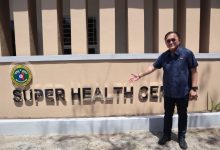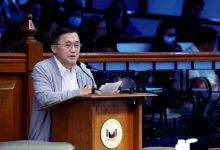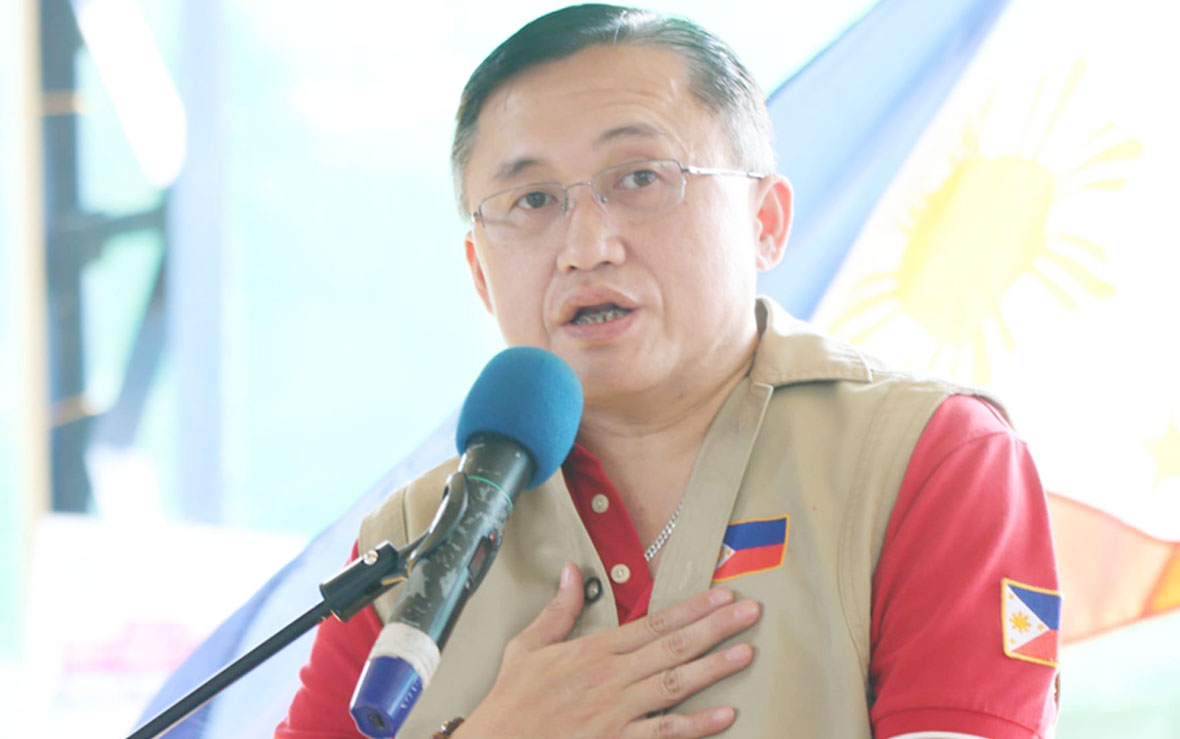IN a Senate hearing on Monday, December 18, on the reported rise of respiratory illnesses, Senator Christopher “Bong” Go, chairperson of the Senate Committee on Health and Demography, emphasized the crucial lessons learned from the COVID-19 pandemic and the necessity for bolstered preparedness in the Philippine healthcare system amid rising cases of influenza, flu and other respiratory diseases.
“The COVID-19 pandemic highlighted the need for us to always prioritize improving the resilience of our communities and the health systems on which they depend,” Go began his opening statement, underlining the pandemic’s profound impact.
“Marami po tayong natutunan sa nakaraang pandemya. At marami po tayong isinusulong para mas mapalakas ang ating healthcare system. Dapat mas handa po tayo ngayon sa anumang health emergency na maaaring dumating,” he added.
Referencing his role in the 2019 budget deliberations as vice chairperson of the Senate Committee on Finance, Go shared a prescient decision concerning the funding for the Research Institute for Tropical Medicine (RITM).
“’Yung pinropose po nila na mababawasan na opisina ng budget sa Department of Health (DOH) ay ‘yung RITM… Kutob ko lang po noong panahong iyon na huwag bawasan ang RITM, dinagdagan pa natin, ni-restore pa natin at dinagdagan pa natin ang pondo ng RITM for 2020,” he said.
This foresight was proven accurate when, in January 2020, news emerged from China about COVID-19, leading to a state of health emergency declared on March 7, 2020. The RITM, being vital in conducting COVID-19 tests.
The senator then addressed the recent rise in respiratory illnesses both in the Philippines and internationally.
“Mayroon din po akong nababalitaan sa ibang bansa tumataas ang kaso, last month. The Chinese National Health Commission reported an increase in incidence of respiratory diseases in China. Rise in respiratory illness was also reported in Europe and North America,” he stated.
This global trend, according to Go, is mirrored in the Philippines, with the DOH reporting a higher number of influenza-like illnesses (ILI) this year compared to last. Go then highlighted the current state of COVID-19 in the country and the corresponding health care responses.
As to COVID-19 cases, the DOH recorded 260 daily average COVID cases from December 5 to 11, slightly higher than the 191 case average the week before. The Philippine General Hospital (PGH) also began implementing the mandatory use of face masks inside the hospital.
Assistant Secretary Maylene Beltran of the Public Health Services Team A of the DOH cited the uptick in respiratory ILI cases, comparable to global trends. She attributed the recorded uptick to enhanced monitoring of ILI cases and improved surveillance systems, a lesson from the COVID-19 experience.
With the lifting of mask restrictions and increased population mobility, especially during the Christmas season, Beltran echoed Senator Go’s appeal for the need for continued mask usage, despite its voluntary nature.
Go, delving deeper into public health concerns, inquired about walking pneumonia cases in the country and the differentiation between symptoms of ordinary pneumonia, walking pneumonia, and COVID-19.
“Baka po pwede n’yo ma-explain, ma-encourage n’yo po ang ating mga kababayan na magpa-check up po kung kailangan dahil ilang araw na itong karamdaman nila. Na maaaring makahawa at maging delikado po ang kanilang buhay dahil hindi pa sila nakapag-check up at hindi po natitreat itong karamdaman nila,” he added.
Responding to Go’s queries, Dr. Alethea de Guzman, Director IV of the Epidemiology Bureau of the DOH, elaborated on the surveillance system, now shifting towards pan-respiratory surveillance due to the similar presentation of diseases like influenza, pneumonia, and COVID-19. She explained that these illnesses typically begin with fever, coughing, and sore throat, making initial differentiation challenging.
De Guzman also emphasized the importance of testing for accurate diagnosis and noted that the elderly and those with comorbidities are more prone to severe disease. Addressing the concerns about “walking pneumonia,” she clarified that it often presents mild symptoms and is distinguishable through testing.
Dr. Razel Nikka Hao, Director IV of the Disease Prevention and Control Bureau of the DOH, also addressed the issue of “walking pneumonia,” a term causing confusion among the public. She explained that this terminology arises from people unknowingly carrying the disease while continuing their daily activities.
Hao clarified that the term does not indicate a higher transmissibility but rather highlights the mild nature of symptoms. She underscored the role of masks in preventing the transmission of various respiratory illnesses, stating, “’Yung mask nakaka-prevent pa rin.”
Meanwhile, DOH Secretary Teodoro Herbosa, during the hearing, has declared the department’s preparedness not only against COVID-19 but against a spectrum of health concerns.
Go stressed the importance of preparedness and proactive measures against respiratory diseases like COVID-19 and influenza, citing a case of fatal pneumonia in a 78-year-old who had recently returned from abroad.
“Mas mabuti na maging proactive tayo sa ating mga approaches sa laban dito,” Go emphasized.
Herbosa, in his response, indicated their commitment on the DOH’s focus of protecting the health of every Filipino.
“Madami tayong natutunan noong panahon ng pagbugso ng COVID, noong unang beses itong dumating… there are other diseases we also monitor and survey during the time of the holidays,” the health secretary said.
This includes a rise in non-communicable diseases such as heart attacks, strokes, and diabetes, as well as road accidents due to increased partying.
“Sabay po ‘yan, ‘yung infectious disease, nakatutok po tayo d’yan through surveillance and monitoring,” Herbosa added.
Amidst these challenges, Go, in his concluding remarks, reiterated the need for continued discipline and vigilance in the face of health challenges.
“Alam niyo, kung hindi naman po sagabal sa ating mga kababayan, ako ini-encourage ko pa rin kayong magsuot ng face mask, dahil hindi natin alam sino po ang may dalang sakit, sino po ang maaaring mahawa sa ating pamamahay kung hindi naman po sagabal,” he urged.
“Mahigit dalawang taon naman tayong naging disiplinado sa pagsuot nito. Parang rehearsal na nga po ito. Importante ma panatili natin ang disiplina na natutunan natin noong panahon ng pandemya,” he urged.









